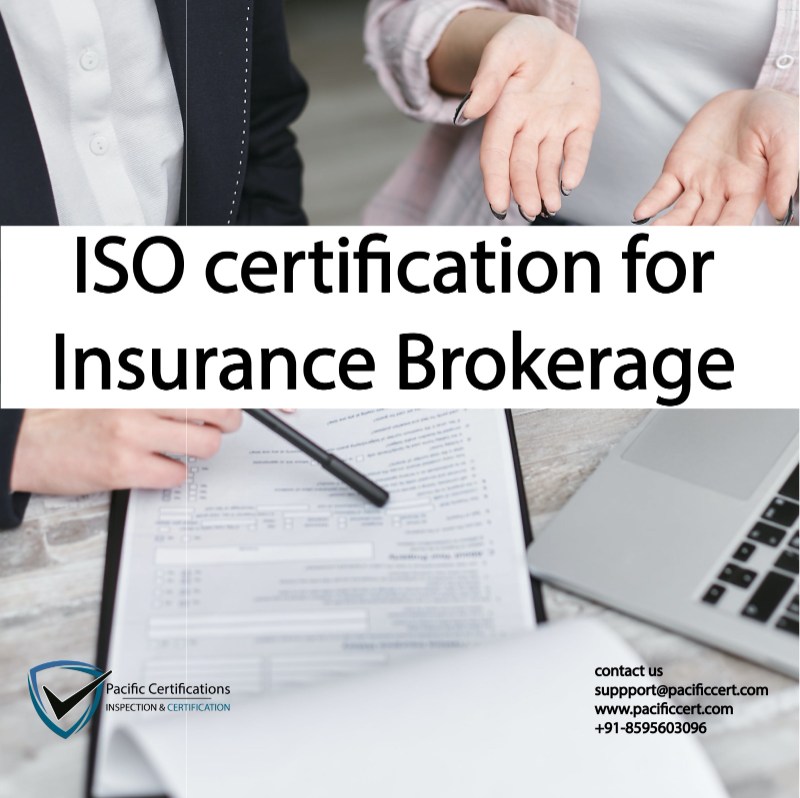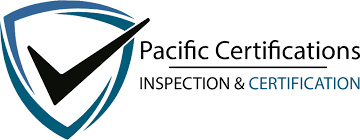ISO Certifications for Insurance Brokerage Firms, Requirements and Benefits

Quick Summary
Insurance brokerages are turning to ISO certifications to reinforce reliability, accuracy, and security in their services. Key standards include ISO 9001 for structured quality management; ISO/IEC 27001 to protect client and transaction data; ISO 22301 for continuity in crisis situations; ISO 31000 to guide risk management strategies; and ISO 14001 for environmental stewardship. The certification process involves conducting a gap analysis, documenting procedures, implementing controls, performing internal audits, management review, and completing external audits via accredited certifiers. Benefits include improved client trust, regulatory compliance, operational consistency, secure data practices, competitive differentiation, and alignment with global standards—helping brokerages better manage risk and reputation.
Introduction
ISO certifications offer significant benefits to insurance brokerage firms by enhancing service quality, security, and operational efficiency. ISO 9001 for Quality Management Systems helps brokerage firms align processes, ensuring consistent service delivery from client onboarding to claims processing, which improves customer satisfaction and trust.
ISO/IEC 27001 for Information Security Management is particularly crucial for insurance brokers handling sensitive client data. This certification ensures that robust security measures are in place to protect personal and financial information from breaches, boosting credibility.
Additionally, ISO 22301 for Business Continuity Management helps insurance brokerage firms ensure they can continue operating during disruptions, such as cyberattacks or natural disasters.
By achieving these ISO certifications, insurance brokers can improve their reputation for professionalism, increase customer trust and ensure compliance with industry regulations.
For ISO certification support, contact [email protected]
Applicable ISO standards:
Here are some relevant ISO standards for an insurance brokerage:
ISO 9001: Quality Management Systems
This is the most recognized standard for quality management. It provides a framework for consistent service delivery, customer satisfaction, and continuous improvement. Implementing ISO 9001 can help your brokerage demonstrate its commitment to quality and customer service.
ISO/IEC 27001: Information Security Management Systems
In the insurance industry, handling sensitive client data is a daily activity. ISO 27001 helps organizations manage the security of assets such as financial information, intellectual property, employee details, and information entrusted by third parties. For an insurance brokerage, this standard is crucial to protect client information and maintain trust.
ISO 31000: Risk Management
This standard provides guidelines on managing risk faced by organizations. It can be particularly beneficial for insurance brokerages, given the inherent risks in the insurance business. ISO 31000 can help identify, assess, and manage risks, enhancing the brokerage's ability to make informed decisions.
ISO 22301: Business Continuity Management Systems
This standard focuses on preparing for, responding to, and recovering from disruptive incidents. For an insurance brokerage, this is crucial to maintain operations during unforeseen events, ensuring minimal impact on service delivery.
ISO 45001: Occupational Health and Safety Management Systems
This standard helps organizations improve employee safety, reduce workplace risks, and create better, safer working conditions. Implementing it can be a testament to your firm's commitment to the well-being of its employees.
ISO 10002: Quality Management - Customer Satisfaction - Guidelines for Complaints Handling in Organizations
This standard guides organizations in handling customer complaints effectively. For an insurance brokerage, where client satisfaction is paramount, this can be a critical area of focus.
Click here to find out more applicable standards to your industry
To implement these standards in your insurance brokerage, it's important to:
Understand the Requirements: Each ISO standard has specific requirements. Understanding these and how they apply to your business is the first step.
Gap Analysis: Conduct a gap analysis to identify where your current systems and processes differ from ISO standards.
Training and Awareness: Ensure that your staff are trained and aware of the standards and their implications.
Documentation and Implementation: Develop and implement policies and procedures that align with the standards.
Internal Auditing: Conduct internal audits to ensure ongoing compliance and identify areas for improvement.
Certification Process: Engage a certification body like Pacific Certifications to audit your systems and processes for compliance with the desired standards.
For assistance with implementing these ISO standards in your insurance brokerage, you can contact us at [email protected]. We can guide you through the process, from understanding the standards to achieving certification.
Requirements of ISO Certifications for Insurance Brokerage
ISO certification for an insurance brokerage firm involves meeting specific requirements set out by the International Organization for Standardization (ISO). Let's delve into both the requirements and benefits:
Understanding and Implementing ISO Standards:
The first step is to understand the relevant ISO standards (e.g., ISO 9001, ISO 27001, ISO 31000) and implement their guidelines into your business processes. This often involves developing or modifying procedures and policies.
Documentation:
Proper documentation is critical. This includes creating a Quality Management System (QMS) for ISO 9001 or an Information Security Management System (ISMS) for ISO 27001, which outlines processes, procedures, and responsibilities for achieving quality and security objectives.
Employee Training and Engagement:
Employees must be trained and fully engaged in the ISO process. They need to understand the standards, their role in achieving them, and the importance of compliance.
Internal Auditing and Review:
Regular internal audits are necessary to ensure ongoing compliance with ISO standards. These audits help identify areas needing improvement.
Continuous Improvement:
ISO standards require continuous monitoring and improvement of processes. Companies must demonstrate a commitment to consistently enhancing their systems.
Certification Audit:
An external audit by a certification body, such as Pacific Certifications, is required. The auditor will assess the conformity of your processes to the relevant ISO standards.
Maintaining Certification:
After obtaining certification, regular surveillance audits are conducted to ensure continued compliance. Recertification typically happens every three years.
Benefits of ISO Certifications for Insurance Brokerage
Enhanced Credibility and Reputation: ISO certification is globally recognized and enhances the credibility and reputation of your brokerage, potentially attracting more clients and partners.
Improved Efficiency and Effectiveness: ISO standards help streamline processes, reduce errors, and increase efficiency. This can lead to more effective operations and cost savings.
Risk Management: Standards like ISO 31000 provide frameworks for identifying, assessing, and managing risks, which is essential in the insurance industry.
Data Security and Privacy: With ISO/IEC 27001 certification, a brokerage demonstrates its commitment to data security and privacy, critical in an industry dealing with sensitive client information.
Compliance with Regulations: Many ISO standards align with legal and regulatory requirements, helping brokerages maintain compliance and avoid penalties.
Improved Customer Satisfaction: ISO standards focus on meeting customer needs and improving their satisfaction, which can lead to increased client retention and loyalty.
Employee Safety and Well-being: Standards like ISO 45001 ensure a safer workplace, promoting employee well-being and potentially reducing absenteeism.
Market Differentiation: ISO certification can differentiate your brokerage from competitors, offering a competitive edge in a crowded market.
Access to New Markets: Certain markets or clients might require suppliers and business partners to be ISO certified, opening up new business opportunities.
Conclusion
In summary, while the process of obtaining ISO certification for an insurance brokerage requires understanding and implementing specific standards and a commitment to continuous improvement, the benefits are substantial.
Pacific Certifications is accredited by ABIS, in case you need support with ISO certification for your business, please contact us at [email protected] or +91-8595603096.
Ready to get ISO certified?
Contact Pacific Certifications to begin your certification journey today!
Suggested Certifications –
Read more: Pacific Blogs
